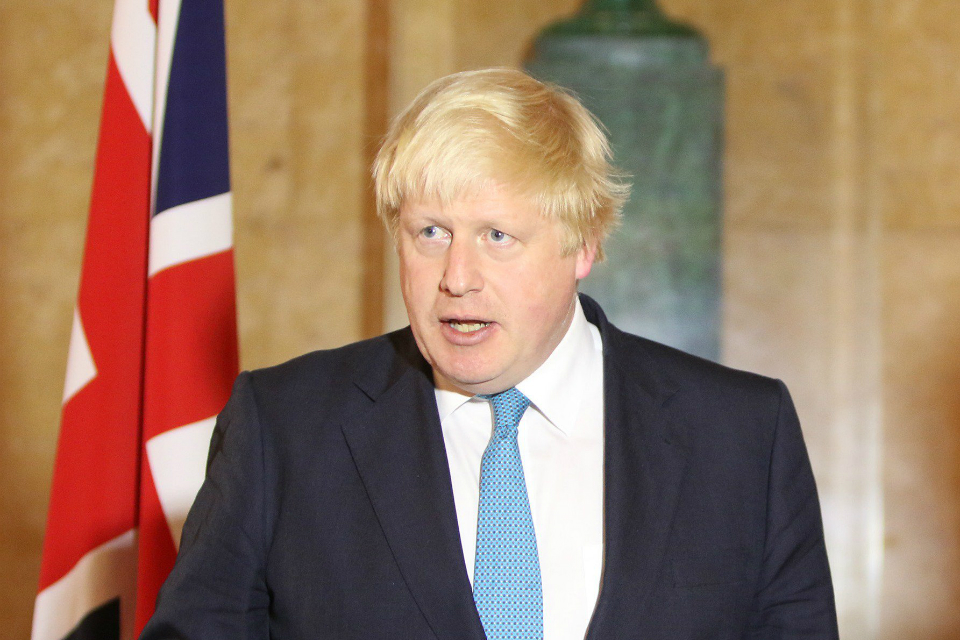Britain needs its allies to stand with us against Russia: article by Boris Johnson
Writing in the Washington Post following the Salisbury attack, the Foreign Secretary sets out Russia's threat to the architecture of global security.

We have a tradition in Britain that any town with a cathedral becomes a city. Salisbury won that title nearly 800 years ago, thanks to the magnificent cathedral that still dominates its streets.
So you can imagine Britain’s sense of revulsion – indeed of violation – over the fact that a tranquil medieval city has witnessed the first offensive use of a nerve agent in Europe since World War II.
As I write, the principal target, Sergei Skripal, and his daughter, Yulia, are both in critical condition. A police officer who went to their aid is also in the hospital. About three dozen others required medical treatment simply because they were nearby when the substance was released.
It was only down to chance that more people are not lying stricken today; the perpetrators clearly did not care how many innocents were endangered. What sticks in my mind is the cavalier indifference – and sheer brazenness – of this attack.
Our experts have identified the weapon used in Salisbury on March 4 as a fourth-generation nerve agent known as Novichok, designed to play havoc with the central nervous system and inflict a lingering death.
Russian scientists developed Novichok starting in the 1970s. Today, only Russia combines a record of state-sponsored assassinations with a publicly avowed motive for trying to kill Sergei Skripal and stockpiles of Novichok agents.
On Monday, I summoned the Russian ambassador and gave his government 36 hours to inform us if any of these stocks had somehow gone missing.
I regret to say that the deadline passed without a response from the Kremlin. The British government has drawn the only plausible conclusion: that the Russian state attempted murder in a British city, employing a lethal nerve agent banned under the Chemical Weapons Convention.
On Wednesday, Theresa May, the Prime Minister, announced the biggest expulsion of Russian diplomats from Britain for more than 30 years, evicting 23 undeclared intelligence officers. The government will now take a range of measures to protect Britain from hostile states and dismantle the Russian espionage network in our country.
Read the Prime Minister’s statement to Parliament.
But this matter goes far beyond a bilateral dispute. If the Russian state is prepared to deploy a banned weapon in a British city – amounting to the unlawful use of force against the United Kingdom – then the Kremlin is clearly willing to act without restraint. The bleak truth is that what happened in Salisbury could have happened anywhere.
I interpret this incident as part of a pattern of reckless behavior by President Vladimir Putin. The common thread that joins the poisonings in Salisbury with the annexation of Crimea, the cyberattacks in Ukraine, the hacking of Germany’s Parliament and Russian interference in foreign elections is the Kremlin’s reckless defiance of essential international rules.
Most tellingly of all, Russia has made immense efforts to conceal the use of chemical weapons by the Assad regime in Syria. In October, an international investigation concluded that Bashar al-Assad’s forces had used the nerve agent sarin against the town of Khan Sheikhoun in April 2017.
Yet instead of condemning Assad, Russia covered up for him by vetoing the renewal of the international inquiry and, in effect, forcing it to shut down.
How much easier does it become for a state to deploy chemical weapons when its government has already tolerated and sought to hide their use by others? I would draw a connection between Putin’s indulgence of Assad’s atrocities in Syria and the Russian state’s evident willingness to employ a chemical weapon on British soil.
There is a reason for choosing Novichok. In its blatant Russian-ness, the nerve agent sends a signal to all who may be thinking of dissent in the intensifying repression of Putin’s Russia. The message is clear: We will find you, we will catch you, we will kill you – and though we will deny it with lip-curling scorn, the world will know beyond doubt that Russia did it.
As a permanent member of the UN Security Council, Russia has a special obligation to uphold the rules of good international conduct. When it does the opposite and tramples upon these rules, the Kremlin threatens the very architecture of global security.
All responsible nations share an obligation to take a principled stance against this behavior. The countermeasures announced by the Prime Minister are not solely about the attack in Salisbury. Britain is striving to uphold the rules on which the safety of every country depends. I hope and believe that our friends will stand alongside us.
Updates to this page
Published 15 March 2018Last updated 17 March 2018 + show all updates
-
Added translation
-
First published.